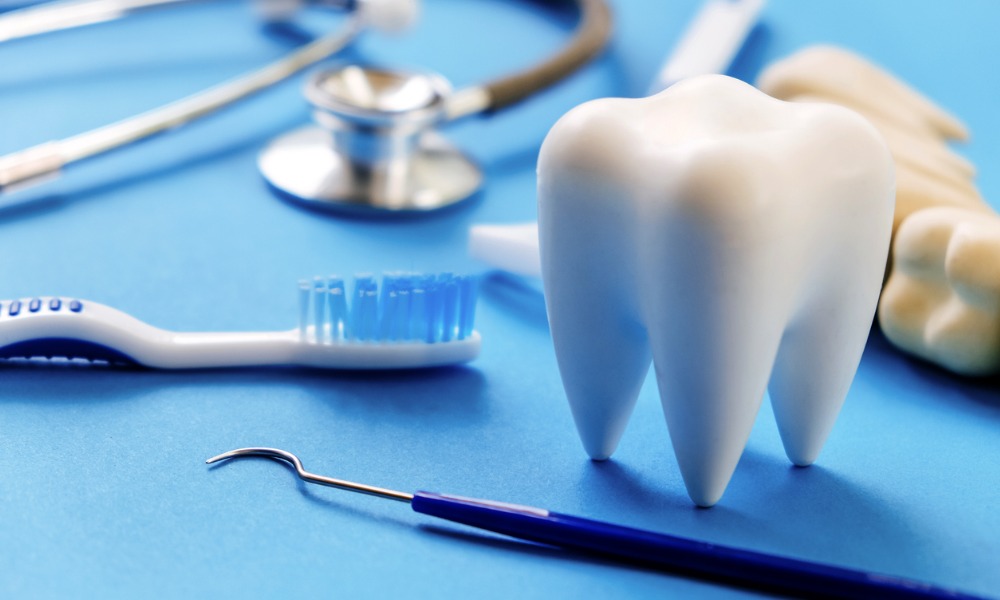New dental coverage for people with disabilities faces hurdles, critics say the tax credit excludes many

A 61-year-old Montrealer eagerly anticipated no longer paying out of pocket for dental care when the government announced national dental coverage for people with disabilities this year, according to The Canadian Press.
Antonella Giordano has been on disability for over a decade due to mental health issues. However, she later discovered she wouldn't qualify for coverage without a disability tax credit certificate, a process she found nearly impossible to navigate.
On Thursday, the government expanded eligibility for its dental-care program to uninsured low- and middle-income children under 18 and people with a disability tax credit. Although Giordano applied for the tax credit certificate, she doubts she will be approved and thus won't be eligible for dental coverage.
“You practically have to jump through hoops, and even my doctors have said the same thing,” she said.
The government estimates 1.2 million more people will now be able to apply for the program. Critics argue that basing eligibility on the tax credit excludes many who need help. This will remain until program eligibility expands to everyone meeting the income criteria.
Citizens' Services Minister Terry Beech mentioned that the full rollout will occur in January 2025, but Health Canada clarified it would happen sometime next year.
“Somebody who's getting maybe $3,000 a month on disability and has the certificate is eligible for dental care ... and ironically somebody on disability who makes, let's say, $1,000 a month is not eligible because they don't have the certificate,” Giordano remarked, calling the criteria insulting.
“How the heck is this fair?”
Health Minister Mark Holland defended the gradual approach, negotiated with the New Democrats to prevent an early election. Both federal parties suggest a slower launch will make the process smoother.
“Rolling it out to everybody is a big deal, and every person that gets care that didn't get care before is a victory,” Holland said at a press conference in Winnipeg on Thursday.
The government recently faced criticism for overpromising and underdelivering on a new disability benefit. Initially, the Liberals claimed the benefit would lift hundreds of thousands of people with disabilities out of poverty.
The budget revealed the program would help 25,000 people by providing up to $200 per month to low-income individuals with disabilities. Like the dental plan, the benefit relies on the disability tax credit certificate for eligibility.
“What are people going to do with good teeth if they have nothing to eat?” asked Rabia Khedr, director of Disability Without Poverty. “We need to recognize that reality: disabled people today need food, they need a roof over their head.”
Several provinces already provide dental coverage to people with disabilities, raising questions about how different government plans will work together.
While answers remain unclear, Holland said he's coordinating with provincial and territorial governments to make it a “seamless experience” for patients.
Currently, the government covers only straightforward care, with complex procedures requiring pre-authorization until November. Over 200,000 people have made claims for dental care under the program so far. Holland expects the program to endure and remain resilient to future political changes.
“When we're talking a year from now, and instead of 200,000 people, we're talking about millions of people who've received oral health care, I think it's going to change this country permanently,” Holland said.
“I don't think any political party will come to a microphone and say they're going to take that away.”
NDP Leader Jagmeet Singh accused the Conservatives of wanting to remove the new coverage. A Conservative spokesperson wouldn't confirm if the party planned to eliminate the program if elected.
“While the vast majority of Canadians don’t qualify for this so-called 'universal' program, those who do are unable to get the dental care they need at the dentist they want and still often pay out of pocket,” Conservative health critic Dr. Stephen Ellis said in a statement Thursday.
The government's dental program was designed to provide a safety net for people without insurance who can't afford dental care.



